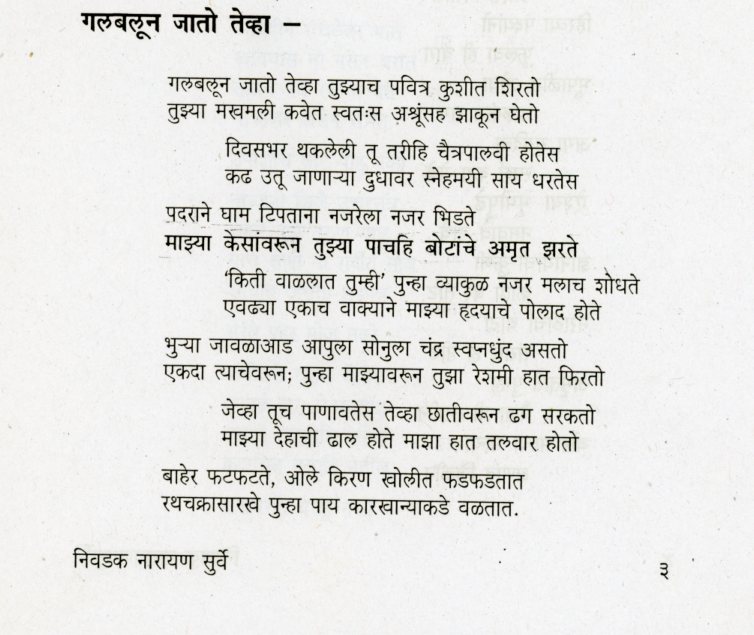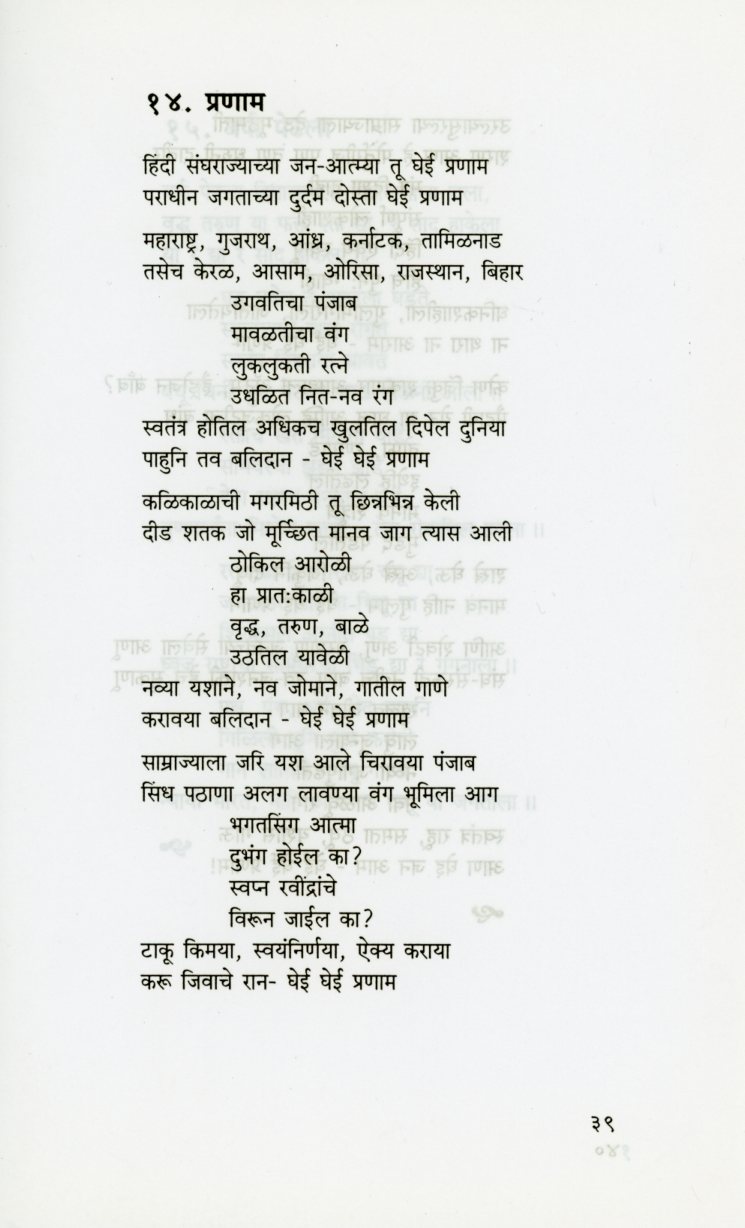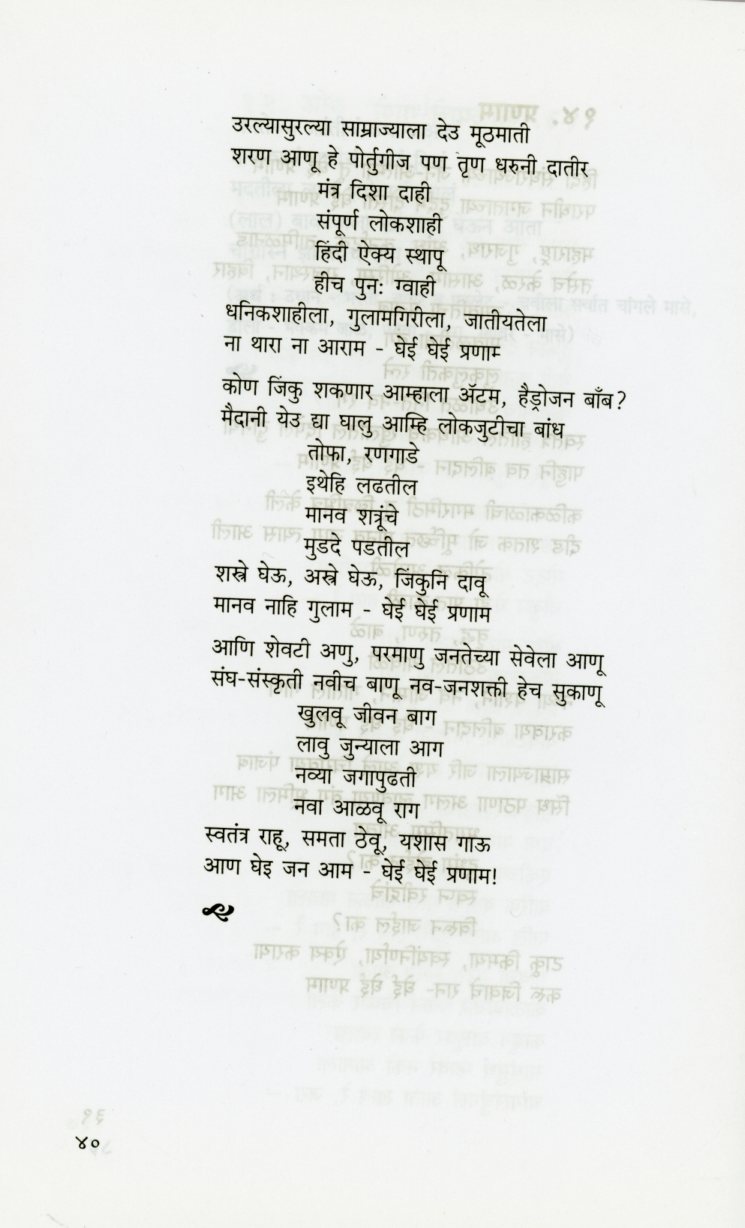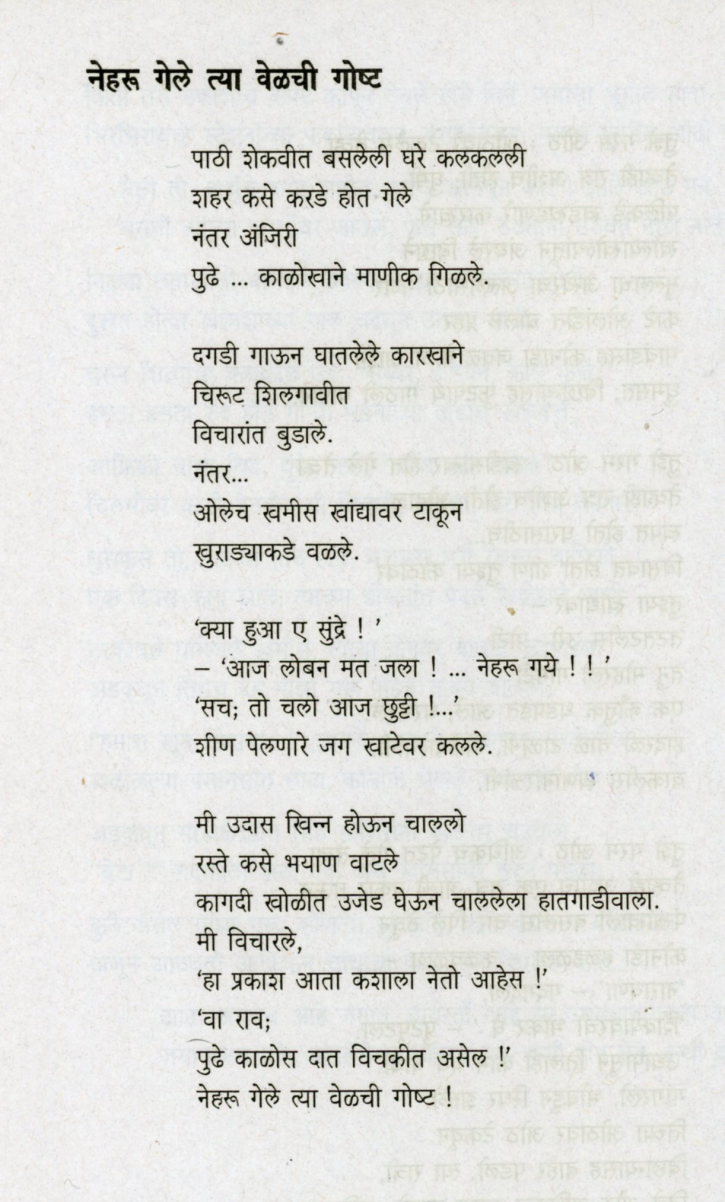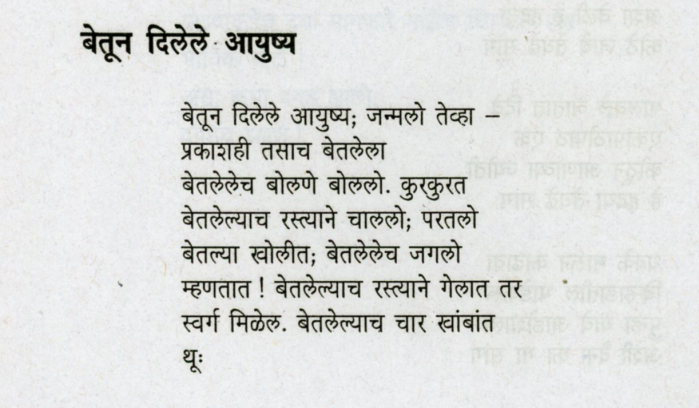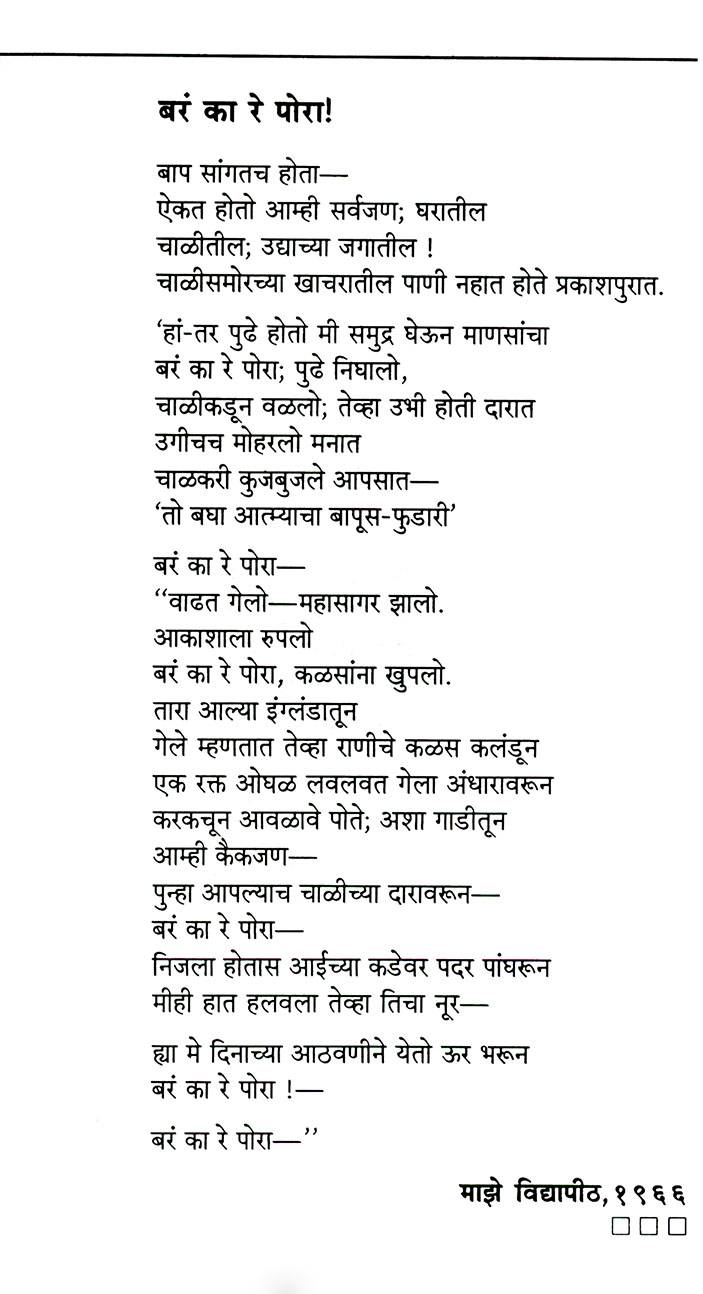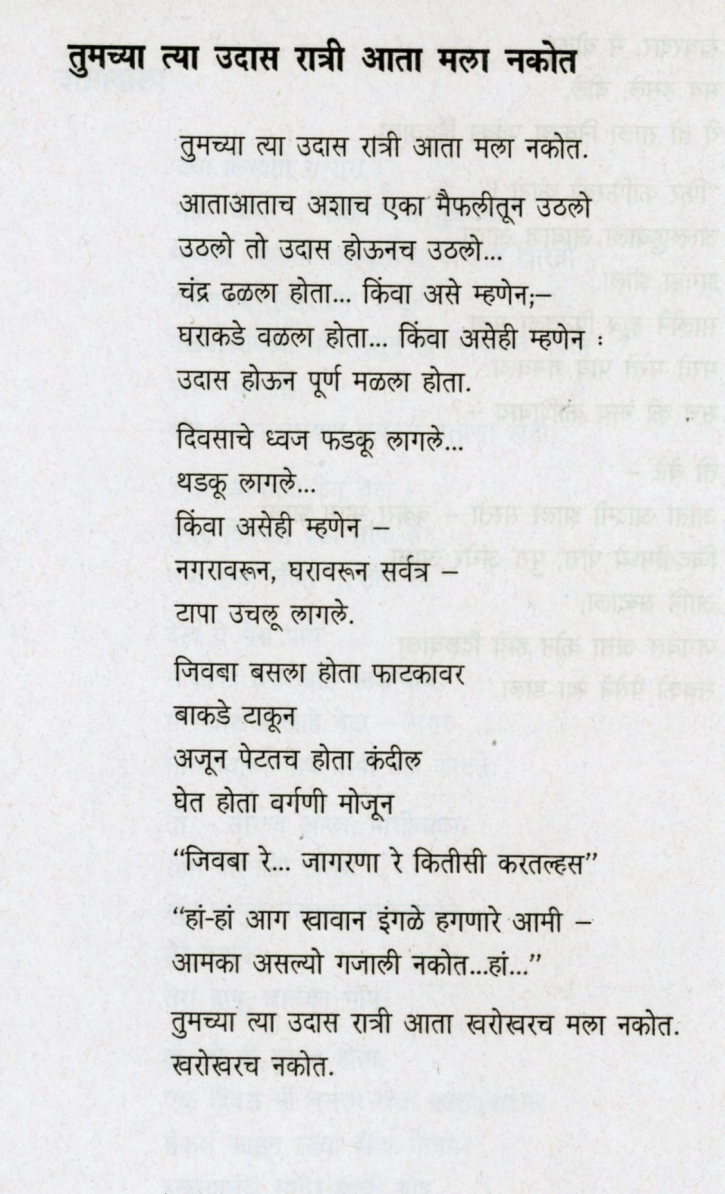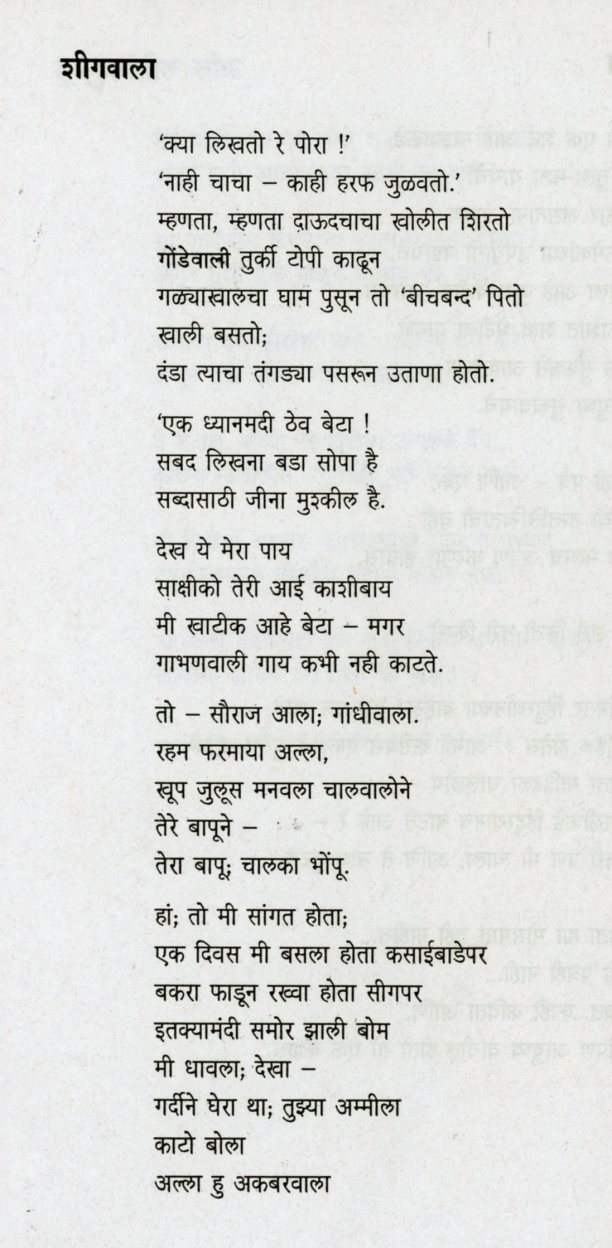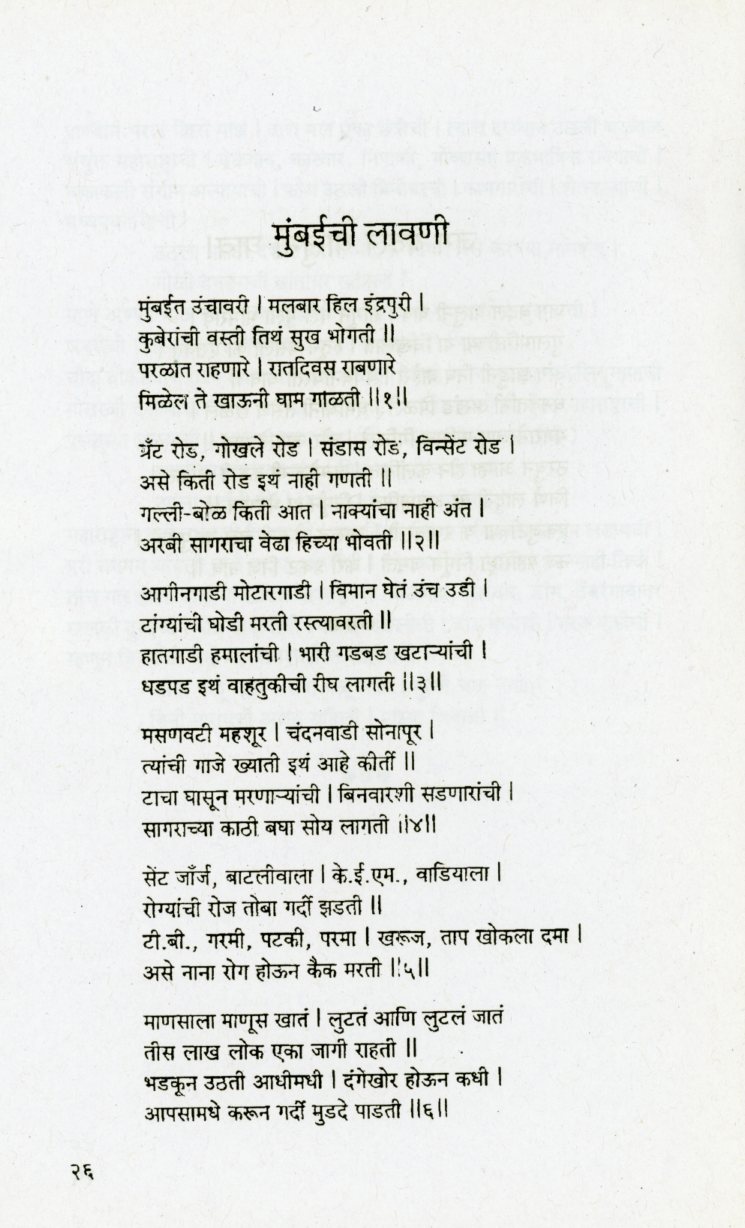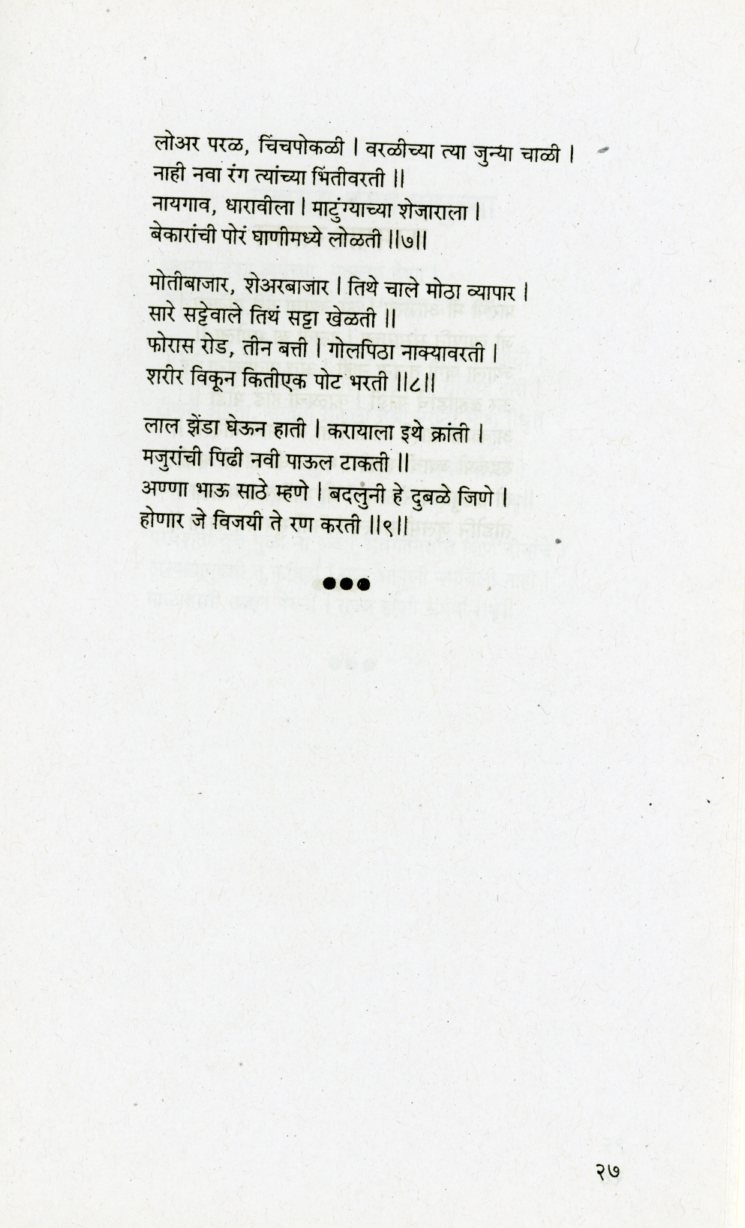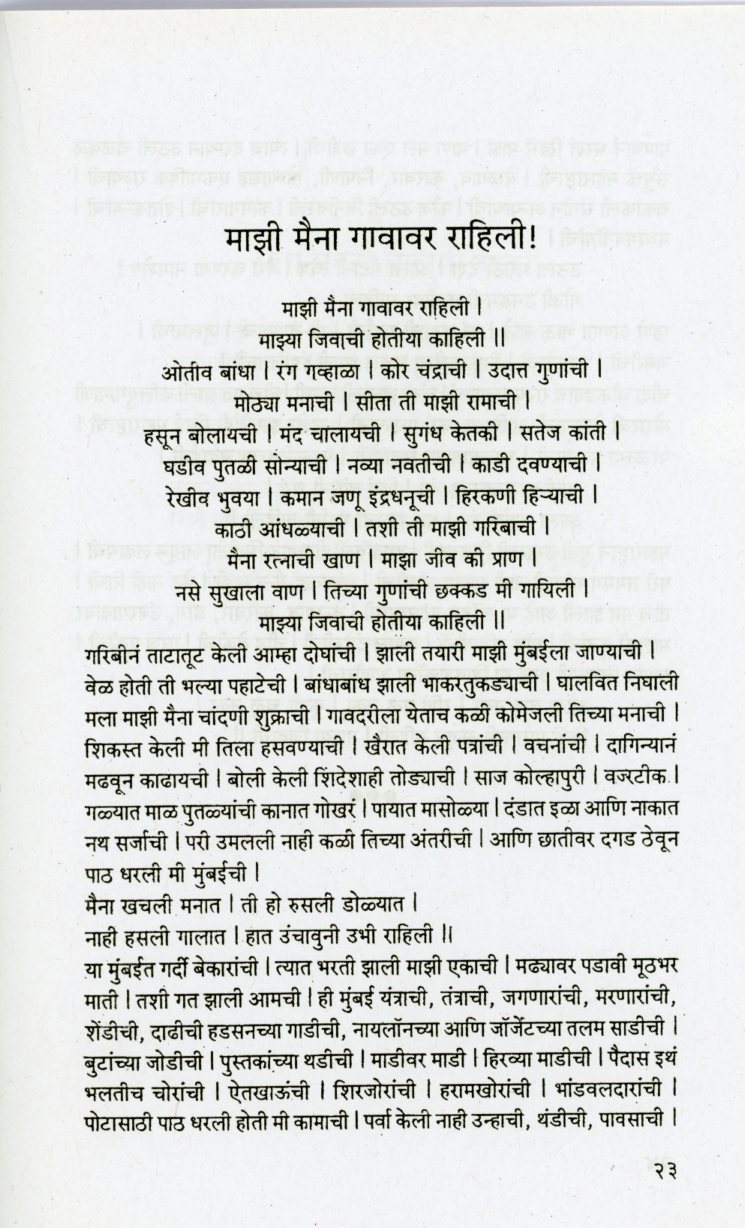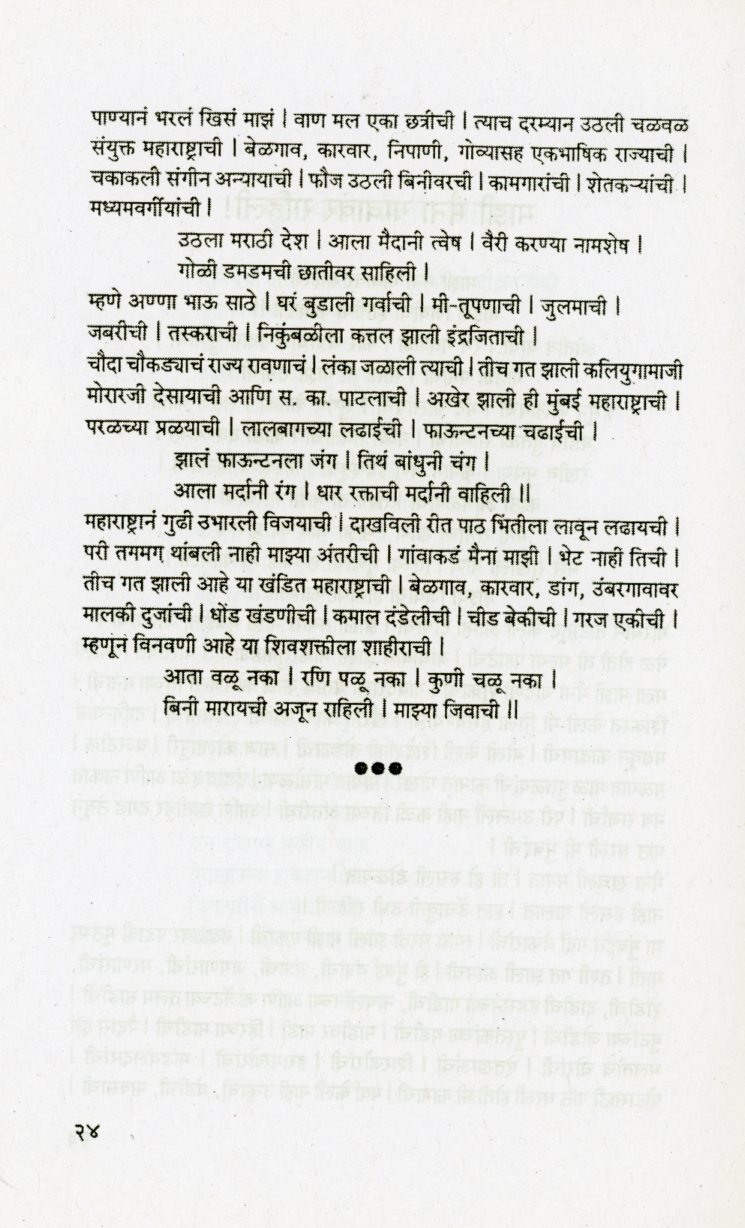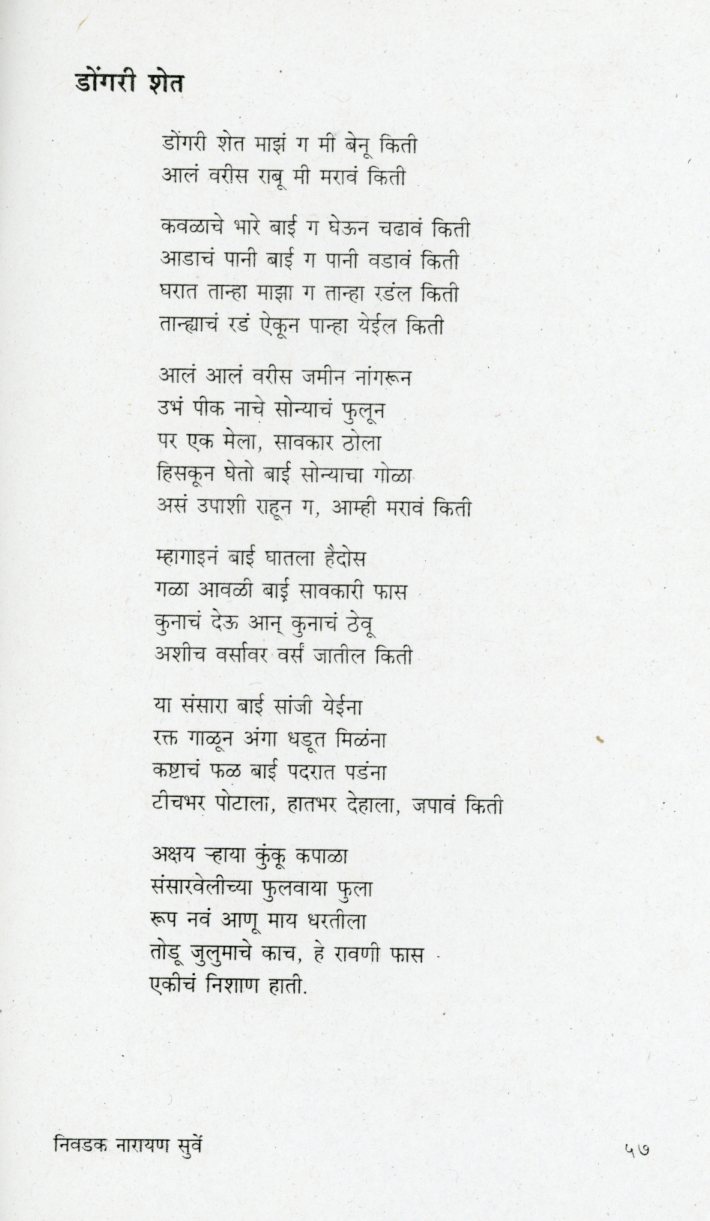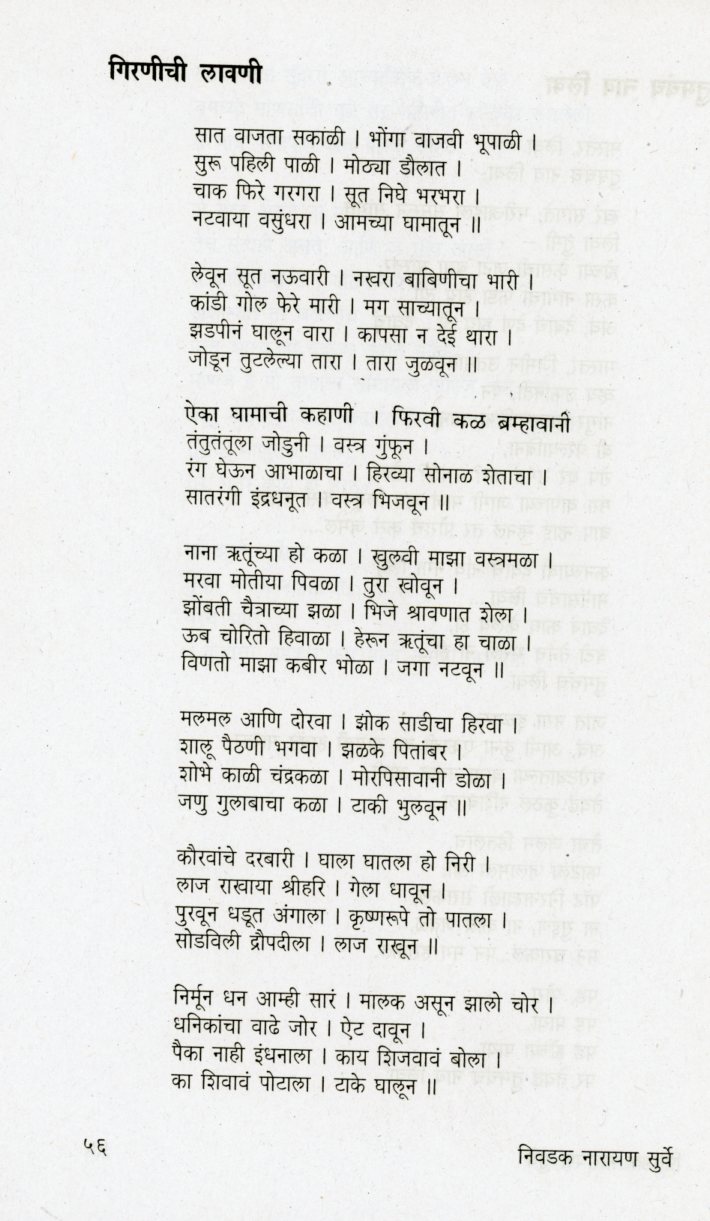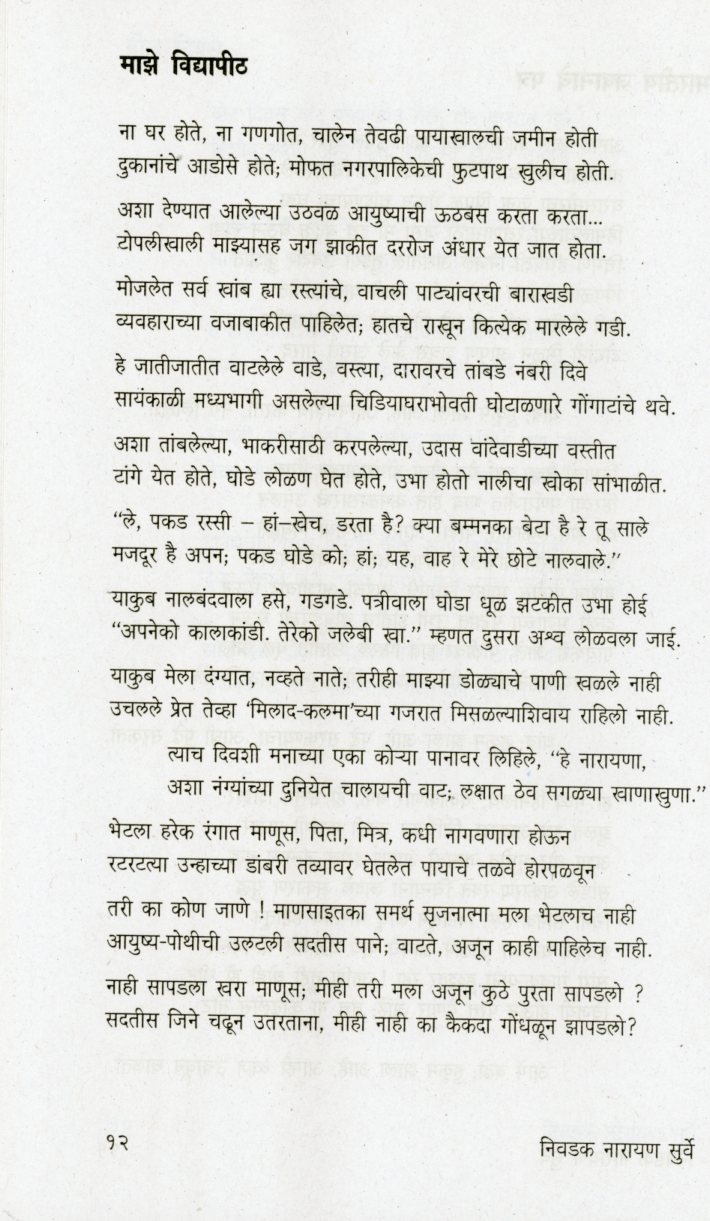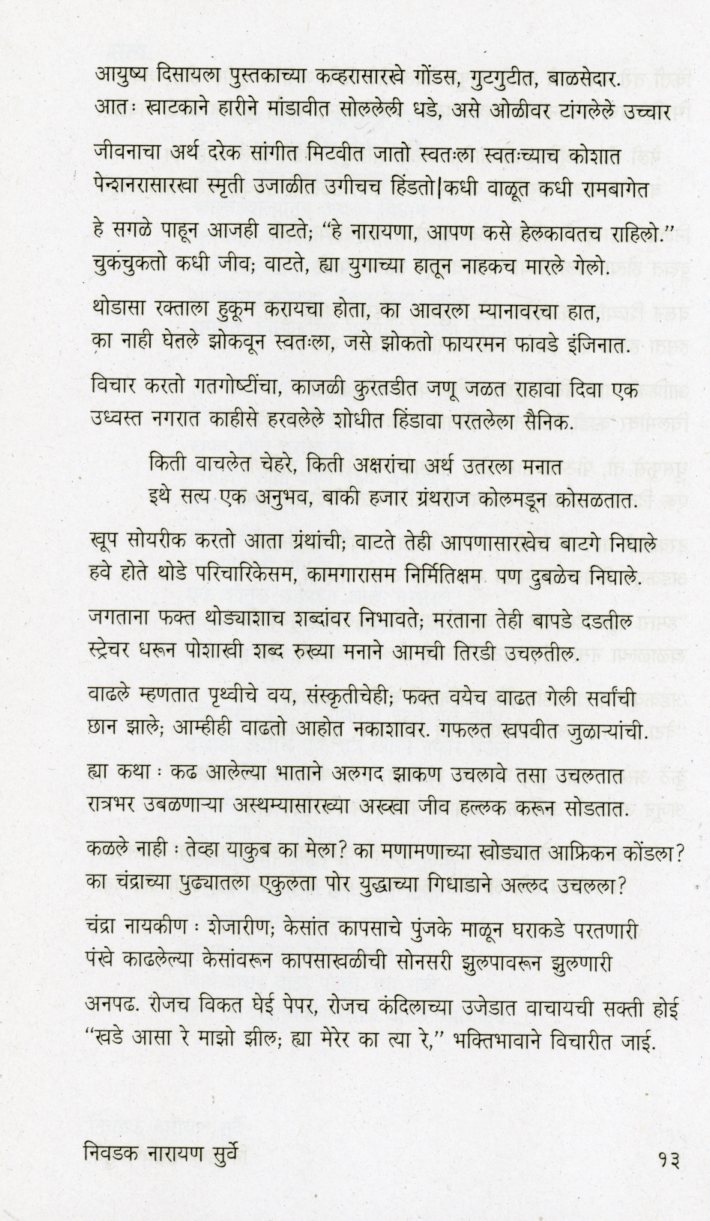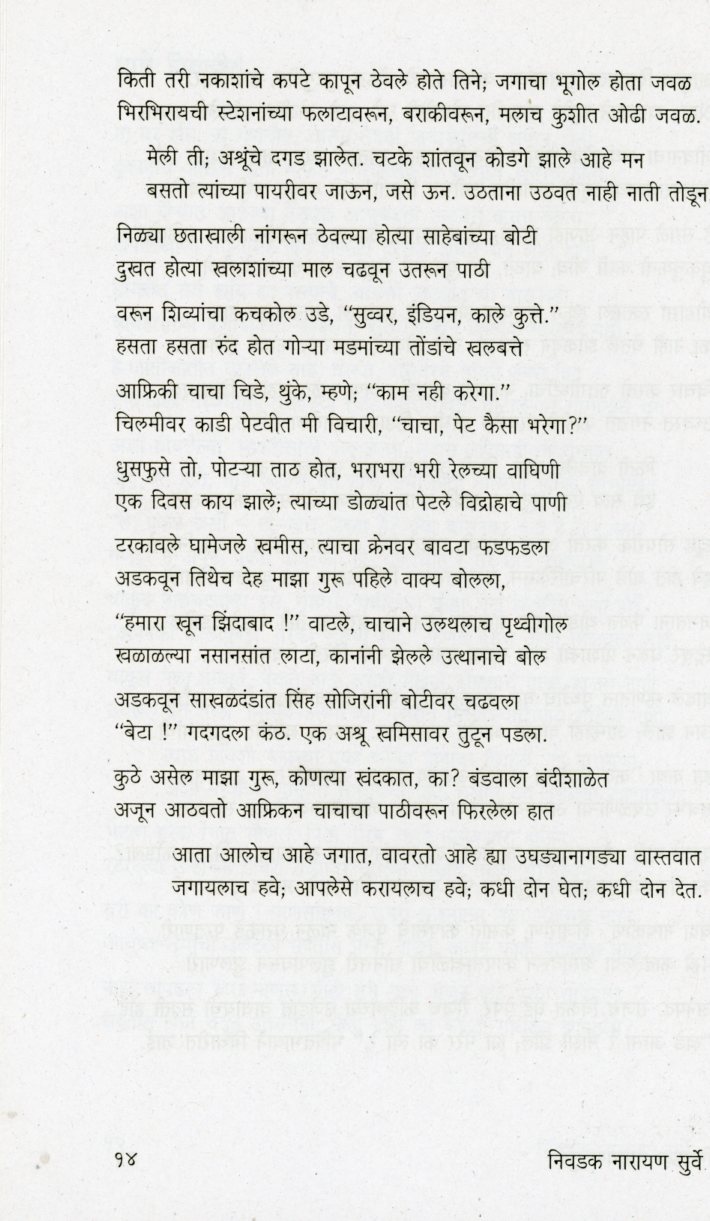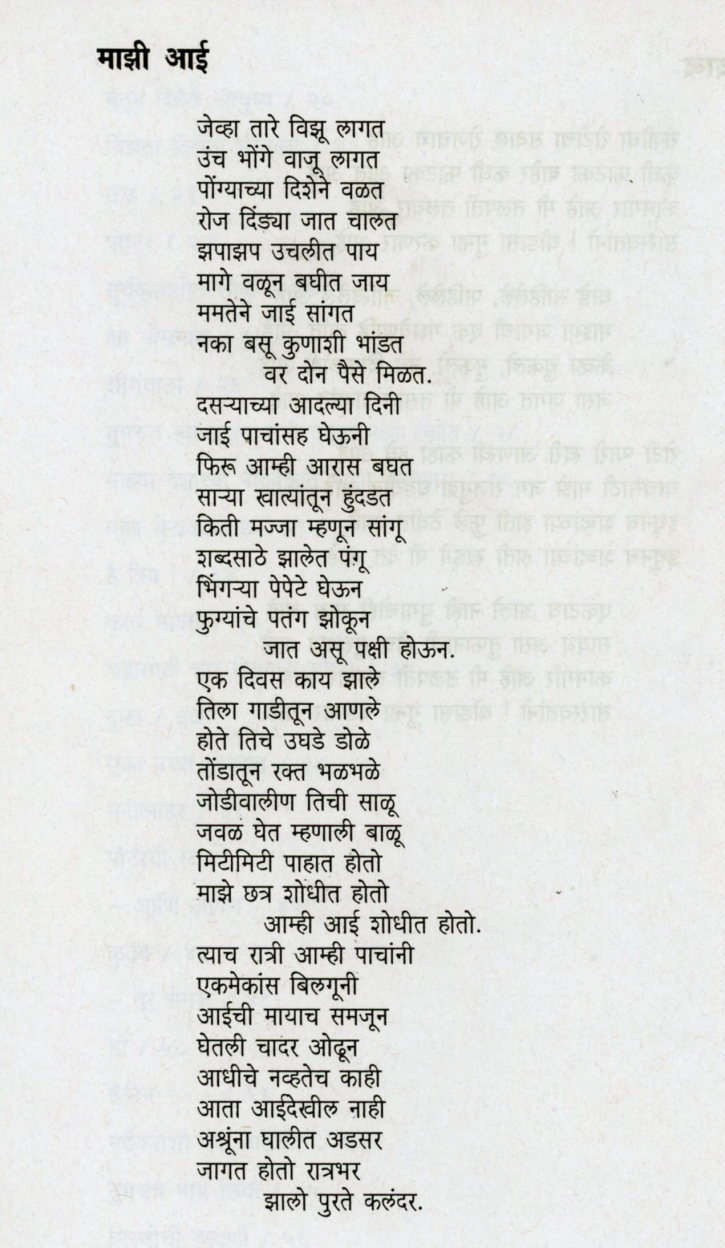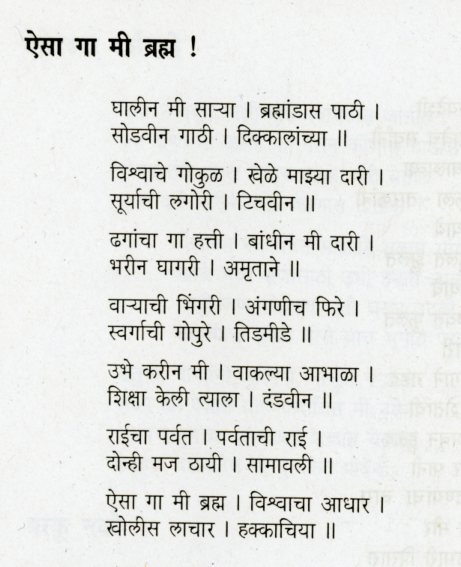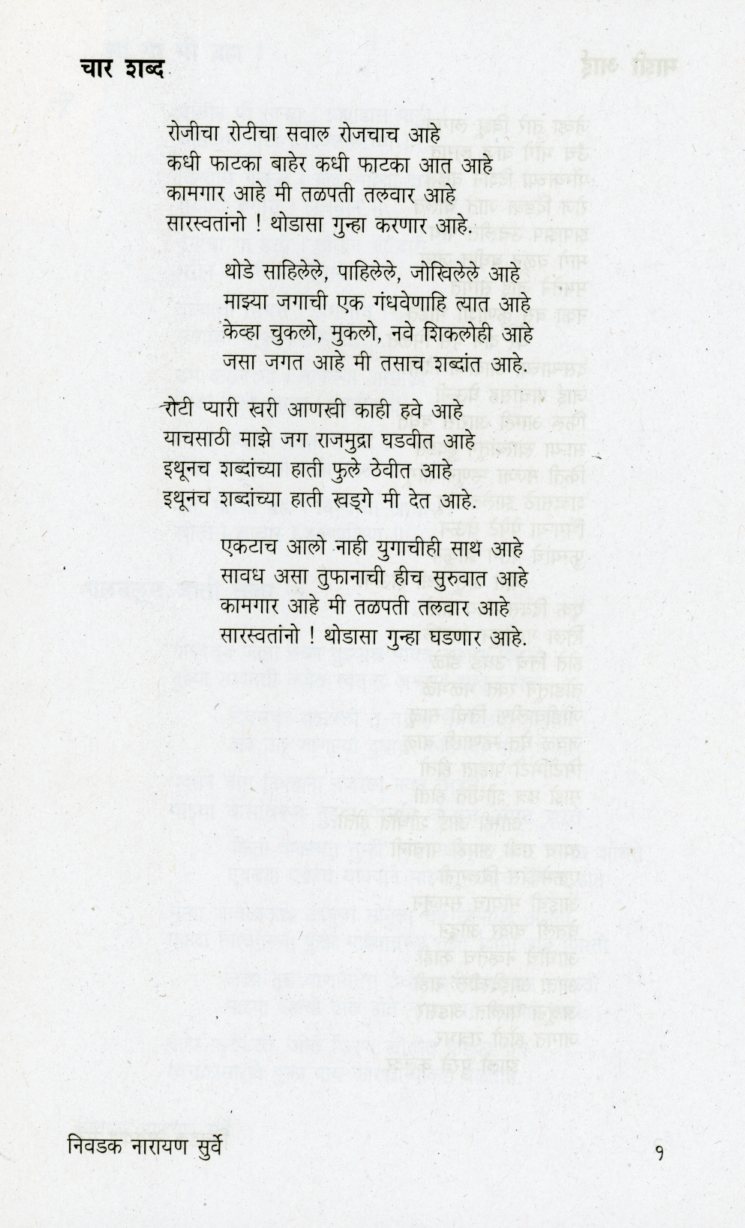The films presented in this section have been produced as part of the Working with Video-II course that is offered to the the students of MA in Media and Cultural Studies in the third semester. As part of the course, the students are expected to take up a theme related to the city of Mumbai and explore it from various perspectives using the video documentary form. Apart from providing additional research, visualisation, writing and video production skills to the students, several workshops are organised, as part of the course, to orient them to the chosen theme and connect them to relevant individuals and organisations who could facilitate their efforts in research and production for what will be their first documentary films.
The underlying idea behind such an approach is to encourage students to engage with the city – its past and present – work with people, collectives, movements and organisations that are working to raise and address questions of dignity and justice, and render the stories that remain untold in a critical and sensitive manner.
On the lines of Giran Mumbai series produced by the class of 2015, several similar projects have been undertaken by the students and faculty members of the School. These are:
From the Margins (link) Transforming M-East Ward: A set of films and oral-history videos from the severely disadvantaged municipal ward in Eastern Mumbai.
Remembering 1992 (link) A set of films and interviews revisiting the city two decades after the violence it experienced in 1992-93.
Castemopolitan Mumbai (link) Exploring the persistence of caste in a modern, ‘cosmopolitan’ city.
Two more films, Bharatmata Ki Jai and Saacha made by the students and faculty members of the School respectively, are also presented on this page as they speak poignantly to the theme.
Delisle Road Dreams
Directors:
Aastha Tyagi, Anurag Indwar, Rajashree Gandhi and Sriram Mohan
Synopsis:
When a city transforms in slow-motion, its inhabitants undergo a transformation that isn’t always obviously visible. The story of how Mumbai’s mill character was systematically dismantled is often narrated as a series of happenings. However, what such histories of the city do to the mindscapes and aspirations of the people involved is not captured in its nuances. Through the testimonies of three generations of an erstwhile mill worker-led family, living in a Delisle Road chawl, our film tries to explore the metamorphosis of hopes, dreams and survival itself. What does Jayashree, who was a badli kaamgaar (substitute labourer) in the mills hope for her son Yuvraaj, a computer operator in an ad agency? What does young Yash, Yuvraaj’s son, aspire for? How do all of them imagine a ‘good life’ in a city that is ruled by a real estate lobby? How do they remember their past with respect to the mill lands of Mumbai? ‘Delisle Road Dreams’ hopes to unravel these questions and more.
13 mins 27 secs
Marathi & Hindi
English
HerStories
Directors:
Fareeda Muhammed, Milanth Gautham, Ridhima Sharma, Shiva Thorat and Silja Wurgler
Synopsis:
An attempt to challenge the conventional male-centric way of looking at histories, HerStories revolves around the lives of Vaishali Girkar, Sulekha Rana and Laxmi Dhamanse – all of them, former mill workers. The film explores their life in the mills, their struggle after the strike of 1982 and the way in which they continue to negotiate the personal with the political. The owner of a foodstall in Worli, an artist and a broker, today Vaishali, Sulekha and Laxmi are successful independent women in their own right but the mills and the Great Textile Strike of 1982 continues to be an important part of their lives that they cannot and do not wish to forget. In fact, theirs is also a struggle to keep the legacy of the mills alive.
15 mins 12 secs
Marathi & Hindi
English
Mahatma Phule Vyayam Shala
Directors:
Gitanjali S, Mukta Patil, Munmun Dhalaria, Rohini Talewar and Sandeep Viswanath
Synopsis:
Three generations of men come together and share their stories to tell us why they need this Mahatma Phule Vyayam Shala and the sport of kushti. Though the film is set in Lower Parel, Mumbai, it is a universal story of migration and the aspirations it brings. It is a reflection on the concerns surrounding a dying sport. ‘Mahatma Phule Vyayam Shala’ is a gymkhana that was established in the 30s to house and train kushti wrestlers who worked at the cotton mills of Bombay. Following the demise of the mills at the end of the 20th Century, this ‘vyayam shala’ now stands at the brink of its demise. With its context eroding from the city, the sport is slowly disappearing. Today, it struggles to remain open and provide a space for practice and fitness for its members.
15 mins
Marathi
English
Rajacha Lalbaug
Directors:
Anisa Bhutia, Bishaldeb Halder, Pibathoi Naorem, Pradeep Pillai and Ruchi Sawardekar
Synopsis:
The area of Lalbaug lies in the heart of Girangaon, the erstwhile mill district of Bombay. The Lalbaugcha Raja (King of Lalbaug) is perhaps the most iconic Ganesh idol in a city that has adopted Ganesh as its deity like none other. More than thirty million people visit the site to seek its blessings within the ten day period of the festival. What is it that has made the place so popular, almost a pilgrimage spot in the heart of a teeming megalopolis? Is it sheer providence or something more human in its construction? If the latter, then who are the people behind it? Is it a coincidence that the Raja’s meteoric rise to prominence over the last decade overlaps with some of the biggest ruptures in the demographics of the city, its financial cartography and its ways of living? Is this newfound frenzy of reverence part of a prophesied latter-day revelation? Or is it a concerted effort to elide an unquiet past using the twin opiates of the masses: religion and the media? ‘Rajacha Lalbaug’ is an attempt at answering some of these questions.
22 mins 27 secs
Marathi & Hindi
English
Bharatmata Ki Jai
Directors:
Avadhoot Khanolkar, Anurag Mazumdar, Arpita Chakraborty, Amol Ranjan and Shweta Radhakrishnan
Synopsis:
At the heart of Mumbai’s mill country, Lalbaug-Parel, stands Bharatmata Cinema, one of the remaining single screen theatres that plays only Marathi films. The theatre is an iconic reminder of a colourful working class culture which is now on the decline in Mumbai. Through the narratives of Kapil Bhopatkar, the owner, and Baban, one of the oldest employees of the theatre, the film explores the history and development of Bharatmata as a space for articulating the cultural identity of Mumbai’s working class and ponders on its existence and survival. The characters, though from widely disparate socio-economic classes, come together in their passionate love for cinema and their celebration of the main character in the film, Bharatmata Cinema itself.
28 mins
Marathi & Hindi
English
Saacha
Directors:
Anjali Monteiro and K P Jayasankar
Synopsis:
Saacha is about a poet, a painter and a city. The poet is Narayan Surve, and the painter Sudhir Patwardhan. The city is the city of Mumbai (a.k.a. Bombay), the birth place of the Indian textile industry and the industrial working class. Both the protagonists have been a part of the left cultural movement in the city. Weaving together poetry and paintings with accounts of the artists and memories of the city, the film explores the modes and politics of representation, the relevance of art in the contemporary social milieu, the decline of the urban working class in an age of structural adjustment, the dilemmas of the left and the trade union movement and the changing face of a huge metropolis.
48 mins 31 secs
Marathi
English
